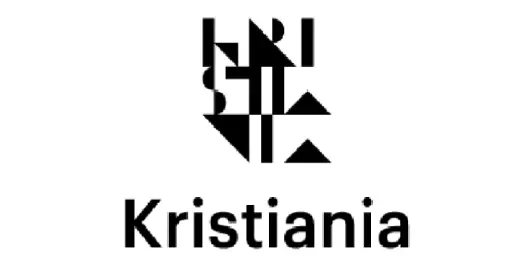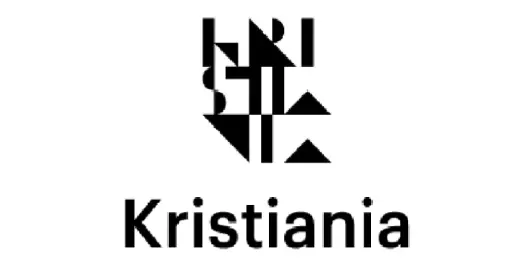Ledig stilling på Universitetet i Oslo
Blindern og Urbygningen (Foto: Wikimedia og Colourbox)
PhD Research Fellow in Chemistry
Deadline: 28.02.2023
Universitetet i Oslo
The University of Oslo is Norway’s oldest and highest rated institution of research and education with 28 000 students and 7000 employees. Its broad range of academic disciplines and internationally esteemed research communities make UiO an important contributor to society.
Centre for Materials Science and Nanotechnology (SMN) is an interdisciplinary focus field for material and energy research at the University of Oslo. SMN has focused on basic research in renewable energy and environmentally friendly use of fossil energy sources. The center consists of research groups from the Department of Physics (Fi) and Chemistry (Ki), has about 100 employees from around the world and manages more than 80 projects funded by the EU, the RCN and others.
Job description
A position as PhD Research Fellow in chemistry related to catalytic testing of functionalized, microstructured materials for C-H activation is available at the Centre for Materials Science and Nanotechnology (SMN), Department of Chemistry, University of Oslo, Norway.
No one can be appointed for more than one PhD Research Fellowship period at the University of Oslo.
Preferred starting date of August 15, 2023 and no later than October 1, 2023.
The fellowship period is 3 years.
A fourth year may be considered with a workload of 25% that may consist of teaching, supervision duties, and/or research assistance. This is dependent upon the qualification of the applicant and the current needs of the department.
More about the position
The position is associated with an EU funded ERC-Synergy Grant (ERC-SyG) project entitled: “Unravelling the secrets of Cu-based catalysts for C-H activation (CUBE).”
CUBE is a joint project between the University of Oslo (Norway), the Norwegian University of Life Sciences (Norway), the University of Turin (Italy) and the Max-Planck Institute for Chemical Energy Conversion (Germany).
The ultimate goal of CUBE is the selective production of methanol from CH4 and O2. A promising strategy is to immobilize bio-inspired catalyst sites and second sphere components in solid porous materials, combining heterogeneous and homogeneous catalytic approaches. The unprecedented tunability, stability and high surface area of metal-organic frameworks (MOFs) make them attractive as solid supports for this purpose.
The successful candidate will be central to investigations of the catalytic performance and structure-composition-function correlations of functionalized metal organic framework (MOF) based catalysts.
The PhD candidate will be associated with the research group for Catalysis. The group studies the correlation between catalyst composition/structure and their effects on chemical reactions. The catalysts can be of organic and/or inorganic origin.
The research group for Catalysis has approximately 35 members, subdivided into three groups: the zeolite group synthesizes and characterizes zeolite and zeotype materials and studies catalytic reactions over those materials; the MOF-group does the same with metal-organic frameworks; the homogenous catalysis group synthesizes metal-organic complexes and studies their catalytic reactions. The research group for Catalysis has strong ties to the Hylleraas Centre for Quantum Molecular Science.
Employment in the Catalysis research group will enable the successful candidate to work in a highly cross-disciplinary field in an internationally competitive research group. The ERC-SyG project scheme implies that the successful candidate will collaborate closely with colleagues at all partner institutions, by regular virtual and physical meetings, by sample and data exchange, and by shorter and longer research stays at partner institutions.
Qualification requirements
The Faculty of Mathematics and Natural Sciences has a strategic ambition to be among Europe’s leading communities for research, education and innovation. Candidates for these fellowships will be selected in accordance with this, and expected to be in the upper segment of their class with respect to academic credentials.
- Master’s degree or equivalent in chemistry, materials science or science focused degree in engineering covering the same disciplines
- Foreign completed degree (M.Sc.-level) corresponding to a minimum of four years in the Norwegian educational system
Candidates without a Master’s degree have until 30 June, 2023 to complete the final exam.
The successful candidate must furthermore have documented experience in at least one of the two following areas:
- Kinetic and/or mechanistic studies of organic reactions in liquid phase under inert atmosphere, using NMR, HPLC and/or MS for product detection and quantification
- Kinetic and/or mechanistic studies of organic reactions in gas phase in presence of a solid catalyst, using GC, MS, SS-NMR and/or GC-MS for product detection and quantification
The position's subject area may require licensing under the Norwegian Export Control Act. In order to be considered for the position, it is a prerequisite that UiO must be able to be granted such licence.
Experience with one or more of the following is considered beneficial:
- Transient techniques, such as SSITKA or TAP
- Synchrotron radiation facilities, preferably including operando studies
- Characterization methods, such as SEM-EDX, FT-IR, XRD, N2 physisorption, TGA, NMR, TEM and XPS
- Programming and handling of large datasets
Grade requirements:
The norm is as follows:
- The average grade point for courses included in the Bachelor’s degree must be C or better in the Norwegian educational system
- The average grade point for courses included in the Master’s degree must be B or better in the Norwegian educational system
- The Master’s thesis must have the grade B or better in the Norwegian educational system
- Fluent oral and written communication skills in English. Fluent oral and written communication skills in a Scandinavian language is an advantage
- English requirements for applicants from outside of EU/ EEA countries and exemptions from the requirements
The purpose of the fellowship is research training leading to the successful completion of a PhD degree.
The fellowship requires admission to the PhD programme at the Faculty of Mathematics and Natural Sciences. The application to the PhD programme must be submitted to the department no later than two months after taking up the position. For more information see: here and here
Personal skills
- Ability to conduct high-quality independent research within a broad collaboration
- Good interpersonal communication skills and the ability to work as part of a team
- Willingness to work together with PhD and/or Master/Bachelor students in specialty field
- Self-motivation, creativity, genuine curiosity about the subject, work discipline, professional ethics, and ambition
We offer
- Salary NOK 501 200 – 544 400 per annum depending on qualifications and seniority as PhD Research Fellow (position code 1017)
- Attractive welfare benefits and a generous pension agreement
- Vibrant international academic environment
- Career development programmes
- Oslo’s family-friendly surroundings with their rich opportunities for culture and outdoor activities
How to apply
The application must include
- Cover letter - statement of motivation and research interests and a clear indication how these relate to the position you apply for
- CV (summarizing education, positions and academic work - scientific publications)
- Copies of the original Bachelor and Master’s degree diploma, transcripts of records
- Documentation of English proficiency (applies for non-EU citizens)
- Letters of recommendation
- List of publications and academic work that the applicant wishes to be considered by the evaluation committee
- Names and contact details of 2-3 references (name, relation to candidate, e-mail and telephone number)
The application with attachments must be delivered in our electronic recruiting system (please follow the link “Apply for this job”). Foreign applicants are advised to attach an explanation of their University's grading system. Please note that all documents should be in English or a Scandinavian language.
Interviews with the best qualified candidates will be arranged.
Formal regulations
Please see the guidelines and regulations for appointments to Research Fellowships at the University of Oslo.
According to the Norwegian Freedom of Information Act (Offentleglova) information about the applicant may be included in the public applicant list, also in cases where the applicant has requested non-disclosure.
The University of Oslo has an agreement for all employees, aiming to secure rights to research results etc.
Inclusion and diversity are a strength. The University of Oslo has a personnel policy objective of achieving a balanced gender composition. Furthermore, we want employees with diverse professional expertise, life experience and perspectives.
If there are qualified applicants with disabilities, employment gaps or immigrant background, we will invite at least one applicant from each of these categories to an interview.
Contact information
For further information regarding this position and recruitment process, please contact:
- Professor Unni Olsbye, phone: +47 2285 5456, e-mail: unni.olsbye@kjemi.uio.no
For technical questions regarding Jobbnorge, please contact:
- HR Adviser Olga Holmlund, e-mail: olga.holmlund@mn.uio.no
Apply for this job













